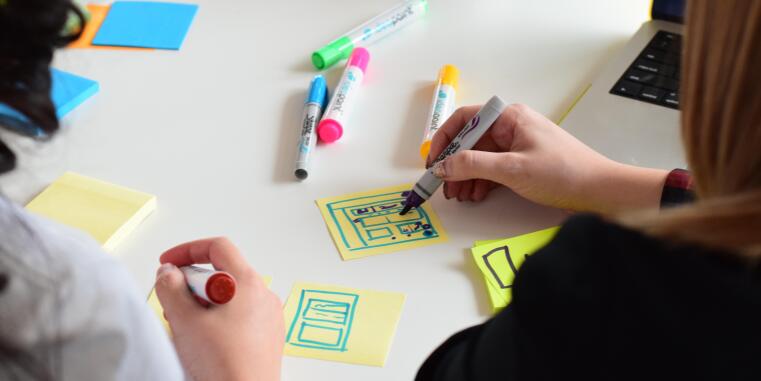

Events in the summer semester 2025
Recommended courses in the summer semester 2025
The following overview is an initial list of recommended DH events. Please check this page from time to time, as the list is updated on an ongoing basis. Usually, the courses are held in German. For some courses, subject-specific knowledge is required, too, please inform yourself individually. We recommend contacting the respective lecturers, as there may be limited numbers of participants. If you know of other courses at the University of Münster in which aspects of Digital Humanities are applied or taught and which are open to certificate students, please let us know.
Faculty 01
Faculty 02
- 020040 Reading course: Frühlingsschule: Digitales Manuskript?! Erschließen – Edieren – Übersetzen (Florine Hund)
- 020712 Intermediate seminar: AI in Theology - Theology in AI (Dr. Matthias Daufratshofer et al.)
Faculty 06
- 060009 Lecture: Data Analysis and Data Presentation (Statistics II) (Jakob Jünger)
- 060065 Seminar: AI ethics and societal knowledge production (Dr. Anne Mollen)
- 060070 Methodological seminar: NLA using software (Dr. Jens Woelke)
- 060434 Seminar: Project-based introduction to AI-supported qualitative data analysis (Dr. Dennis Krämer)
Faculty 08
- 080005 Practical tutorial: 3D applications in archaeology [griech.; röm.] (Dr. Torben Schreiber)
- 080258 Practice: Digitale Quellenkunde für Historiker:innen (Prof. Dr. Jan Keupp)
- 080278 Seminar: Über Bauern herrschen. Software-gestützte Analyse frühneuzeitlicher Quellen zur Grundherrschaft (Prof. Dr. Ulrike Ludwig, Dr. Benjamin Seebröker)
- 080401 Seminar: Theory and application of statistical methods in the analysis of prehistoric and historic graves and settlements (Dr. Frank Siegmund)
- 080512 Seminar/Tutorial: From Manuscript to Digital Edition (Dr. Lukas Reddemann)
- 080779 Seminar: Musikerbriefe: Transkription - Edition – Interpretation (Dr. Peter Schmitz)
Faculty 09
- 091216 Seminar: Digital Papyrology: Encoding Coptic Papyri on the Platform papyri.info (Dr. Suzana Hodak)
- 090136 Seminar: Linguistic structures in digital interaction (Dr. Katharina König)
Faculty 10
- 100028 Lecture/Practical: Introduction to C/C++ (Maria Herick)
- 100116 Vorlesung/Übung: Pattern Recognition (Prof. Dr. Xiaoyi Jiang)
- 106132 Vorlesung/Übung: Introduction to Computer Graphics (Prof. Dr. Lars Linsen)
Faculty 11
- 110244: IVV NWZ self-study course Data Science/Machine Learning (Dr. Martin Korth)
- 110246 Lecture: IVV NWZ self-study course Research Software Engineering (Dr. Martin Korth)
Faculty 14
Workshops of the Service Center for Digital Humanities Münster
Workshops of the SCDH are usually held in German.
Artificial intelligence in the digital humanities
5 to 6 June 2025
first day 1 p.m. to 5 p.m., second day 9 a.m. to 1 p.m.
(Benjamin Weber, Katharina Dietz, Dennis Voltz)
For further information see German text.
Programming for humanities scholars: Basics in Python
22 to 23 May 2025
first day 1 p.m. to 5 p.m., second day 9 a.m. to 1 p.m.
(Mirko Westermeier, Malin Tüllmann)
For further information see German text.
Introduction to TEI-XML
31 March to 3 April 2025
(Dr. Christian Lück, Dr. Benjamin Weber)
We encounter digitised texts in a variety of formats: PDFs, web pages, plain text, Word files, etc. However, if you want to acquire third-party funds for a research project in which the textual basis still has to be indexed digitally, there is no way around a suitable basic format, as required by the DFG guidelines for editions. With good reason: PDFs, web pages, Word files etc. only present the text in a specific medium and in a typographical convention that can only be deciphered by human eyes. At a time where methods of research are also becoming digital, such formats are no longer useful: The texts that have become data must be interoperable in the sense of the FAIR principles in order to enable the reproducibility of research results.
TEI stands for Text Encoding and Interchange and is the best tested and recognised basic format available to us. It has been developed by the Text Encoding Initiative (also TEI) since 1987. The idea is to write a text as a machine-readable data structure. It can be transformed into different views or output formats such as PDFs, websites etc., but is also open to digital analysis. TEI is based on the eXtensible Markup Language (XML), a general technology for data exchange, and thus participates in a large number of technical-industrial standards which, among other things, form the backbone of the WWW.
The workshop offered by the SCDH uses simple examples and hands-on exercises to introduce the recording of texts with TEI. Participants must bring laptops with internet access. The workshop is open to all humanities researchers at the University of Münster as well as students of the certificate Digital Humanities. The number of participants is limited to 20. The workshop is part of the spring school "Manuskriptkulturen. Interdisziplinär. Digital" and will be held in physical attendance. Please register at gkm@uni-muenster.de. Please also indicate whether you would like to attend the course as part of the DH certificate or as an employee.
Credit: Participation in this course and the (collaborative) creation of a blog post in the DH blog enables you to earn one credit point (1 ECTS) for the DH certificate.
Important: As a participant, you must bring your own terminal device to the courses and have the Oxygen XML Editor already installed on it before the start of the spring school and activated it with the University of Münster campus licence. If you are not a member of the University of Münster, you can use the free 30-day trial licence. On work computers, Oxygen can be installed via the Software Centre of the IT Support Units (IVVs); if you have any questions, please contact your IVV.
Due to time constraints, we will not be able to help you install Oxygen during the course.

